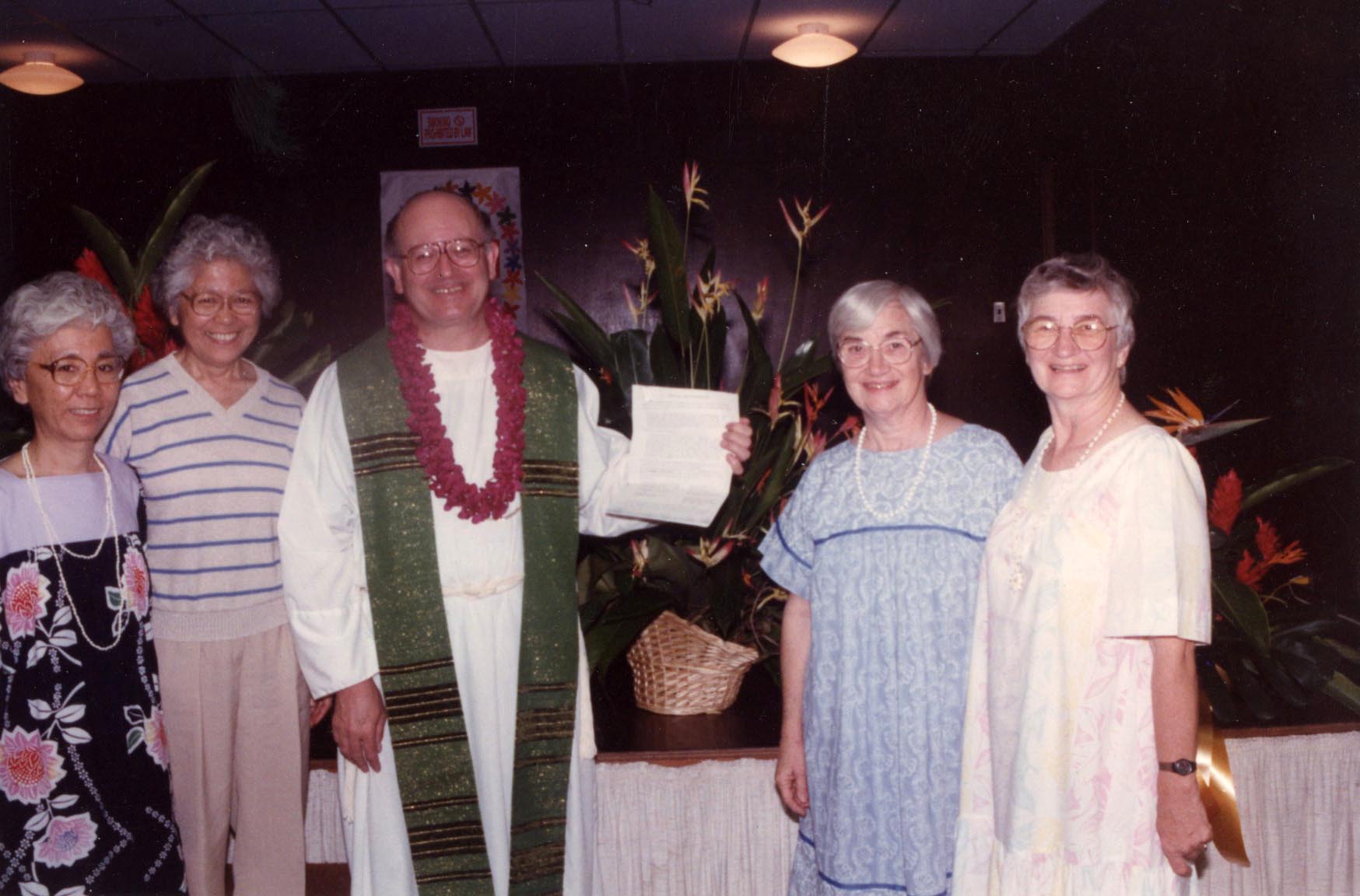The Nativity of the Lord (Christmas)
Sr. Claudette LaVerdiere, MM
December 25, 2023
Is 52:7-10 | Heb 1:1-6 | Jn 1:1-18
“Imagine human life without the Incarnation!”
It was the day after Christmas, sometime in the 1990s. My brother Gene and I were sitting together on the sun porch at home in Maine where we were visiting with our parents. He was sharing with me his Christmas homily of the day before at the church of St. Jean Baptiste in New York City. Thirty or so years later, I can still see and feel the awe reflected in his eyes and in his voice as he spoke these words: “Imagine human life without the Incarnation!”
Since my brother’s death in 2008, I have often reflected on his astonishment – today he would say, “Imagine the world without the Incarnation!” – and I, too, wonder what it would be like without Jesus. It is unimaginable especially considering that our world is never free from strife. Bitter conflicts erupt with disconcerting frequency. As I write, whole populations are unleashing untold suffering, to say nothing of the proliferating animosity in our hyper-polarized world. In such a situation as this, what would be the source of our hope were it not for the Incarnation?
As I reflected on the scripture passages for the Christmas Day Mass, what struck me most was the astonishment each of the readings evokes. “How beautiful are the feet of the one who brings good tidings,” exclaims Isaiah. Psalm 98 beckons us sing a new song because God’s faithful love holds us close. With the author of Hebrews, our amazement expands when we hear the proclamation: “In many and various ways, God spoke of old to our fathers by the prophets; but in these days [God] has spoken to us by a Son! This wide-eyed wonder bursts into a mighty crescendo in John’s Prologue: “And the Word was God!” Each of the readings is a testament of hope, undimmed by the turmoil in the world.
Every Christmas in our parish churches, we bow in worship at the crib of the tiny babe lovingly wrapped like all others. He is presented as needy and dependent as any newborn anywhere in the world. When parents bring their children to the manger, the little ones come in touch with this mystery of God come to live among us as one of us. The Word is God and human just like us! They see the child placed in a manger – a feeding trough! – where he is offered at his birth as nourishment for the world.
At the crib, the youngsters are just starting to reflect upon what it truly takes a lifetime to grasp, the connection between this scene and that moment in Jesus’ life when he presents himself as the Living Bread for the world. As we grow in faith, we deepen the realization that every reception of this “Living Bread” in the Eucharist (Holy Communion) is a personal encounter with Christ, the Bread of Life, and further, that this graced encounter is never for ourselves alone.
Pope Benedict XVI tells us that “it is precisely this personal encounter with the Lord that then strengthens the social mission contained in the Eucharist, which seeks to break down not only the walls that separate the Lord and ourselves, but also and especially the walls that separate us from one another” (Sacramentum caritatis, 66). Our encounter with Christ [God-with-us] makes us bread for each other and for the world. As Pope Francis has written in Laudato Si’ (236-237), “The Eucharist is the living center of the universe, the overflowing core of love and of inexhaustible life. Joined to the incarnate Son present in the Eucharist, the whole cosmos gives thanks to God.” Little wonder that the scriptures for today break out in a thunderous chorus of joyful hope. Indeed, what would the world be like without the Incarnation?
Photo of Maryknoll Sisters Mary Lou Higa, Bernadette Higa, Dolores Rosso, Marie Rosso, and Father Eugene LaVerdiere, SSS courtesy of the Maryknoll Archives

